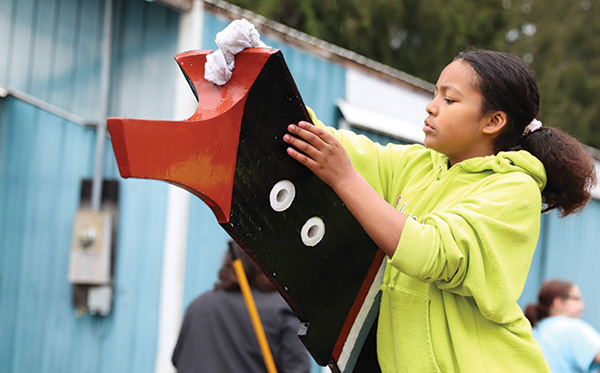
By Kalvin Valdillez
“The canoes have their own spirits because they were living trees at one point,” said Tulalip Skipper, Taylor Henry. “Waking them up is part of that spiritual connection between us and them. It’s literally opening their eyes – because the circles on the canoe head are their eyes.”
One by one, the three Tulalip canoes were carefully hitched to the back of a pickup truck and removed from their designated resting place, at the canoe shed behind the Tulalip Veterans Park, on the evening of May 1. Placed side-by-side at the center of the park, the black and red cedar dugouts were a majestic sight to behold. They radiated with a spiritual energy that was felt by all tribal members in attendance who gathered for the annual canoe cleansing, a special tradition that has been passed through the generations.
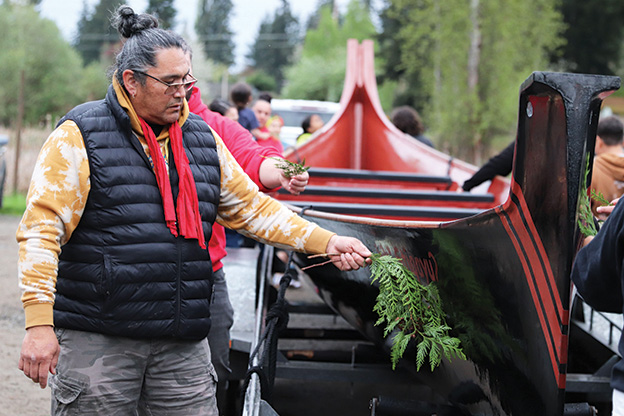
With the coming of springtime and the promise of an eventful summer, which includes Canoe Journey and Spee-Bi-Dah, the canoes were called upon by the sduhubš people to return to their ancestral highways, also known as the Salish Sea, to help the people celebrate and engage in the traditions of the Tribe.
Armed with soapy buckets of water and wash cloths, the people began to gently awaken the spirits of Little Sister, Big Sister, and Big Brother by thoroughly scrubbing every inch of the canoes. Tribal youth accounted for over half of those in attendance at the cleansing. The kids listened to instructions intently and took the task at-hand very seriously as they knew the importance of the work that they were conducting.
Tribal youth, Thomas Wenzel, shared, “I feel like it’s hard work, but not too difficult. I did it with a good heart and embraced that work that we did today. I’m excited because I really enjoy canoe practice.”
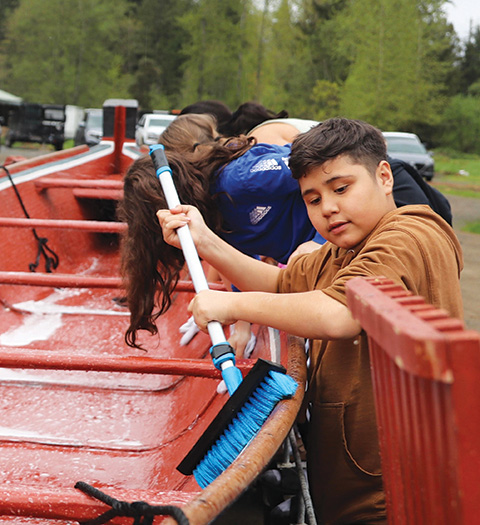
To help build up that canoe puller strength and endurance, the Tribe plans on holding canoe practice once a week until the start of the 2023 Canoe Journey: Paddle to Muckleshoot. For this reason, it’s important that the canoes are awakened in traditional fashion prior to the start of the weekly practices across Tulalip Bay. Canoe practice is not only beneficial to the pullers, but to the canoes themselves in order for them to get reacquainted with the waters and long voyages through unpredictable conditions.
Said Taylor, “Waking them up, it’s like lifting their spirits up, it helps us go smoother on the water. When we take care of them, they take care of us. Today made me feel good, excited to be out on the water, excited to see everybody come together, excited for Canoe Journeys, and to see old friends and families.”
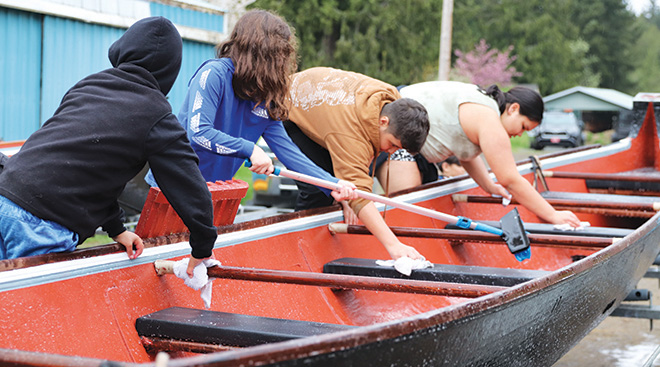
Washing the canoes is only half of the work that takes place at the yearly cleansing event. Once the canoes were restored to their traditional shine, sparkle, and glory, each Tribal member received a cedar branch. Together, the people brushed away any unfavorable energy, emotions, and feelings from the canoes with the medicine of the cedar. The group circled counterclockwise around the canoes four times each, and sang the songs dedicated specifically to Little Sister and Big Sister, and the paddle song to Big Brother.
“We were out here cleaning the canoes and getting them ready for this year’s journey,” stated Tribal member Mike Wenzel. “It’s a cultural connection and something that I like doing. I liked singing and circling the canoes to brush them off and bless them, just keeping the tradition alive.”
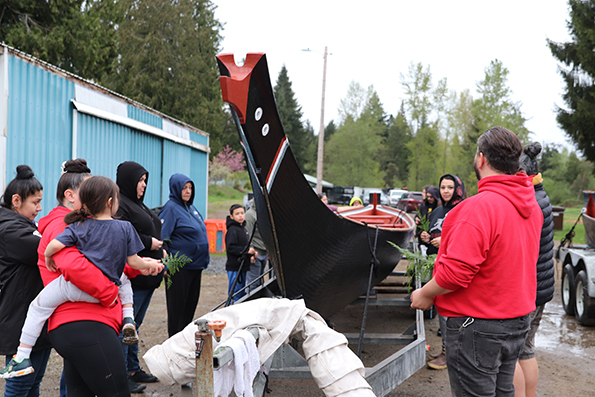
Added Tulalip Skipper, Andrew Gobin, “We brush them off to take anything off of them that may be there from last year, anything that they’re feeling. It feels good to get the canoes washed up and cleaned up, just making sure that they’re in a good place for us as we go out, and they’ll carry us on the water once more and take care of us.”
There are still several weeks before this year’s intertribal Canoe Journey takes place, so if you’re looking to get some reps in, or simply experience the medicine of being out on the water, canoe practice is held at 6:00 p.m. every Wednesday at the Tulalip Marina.